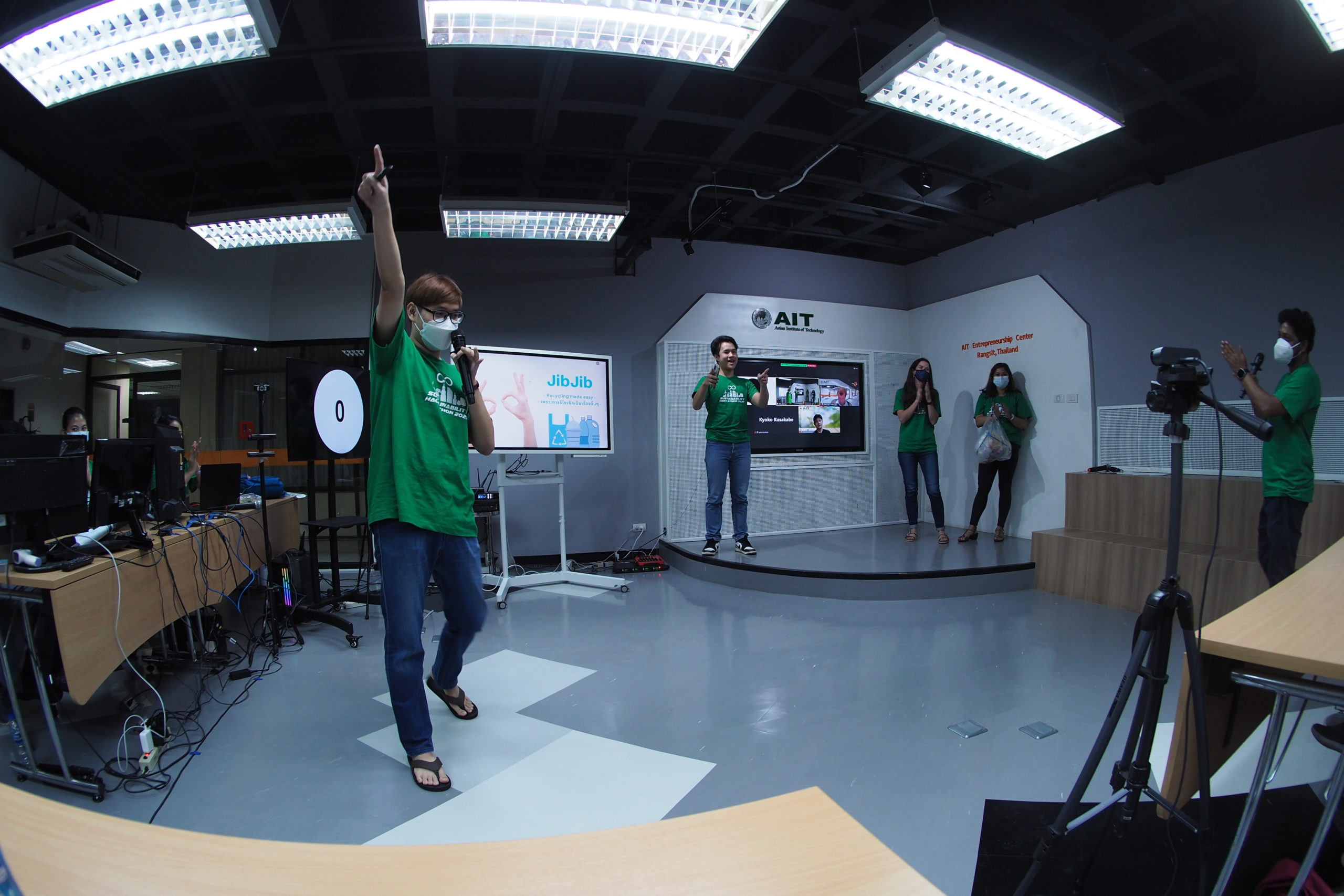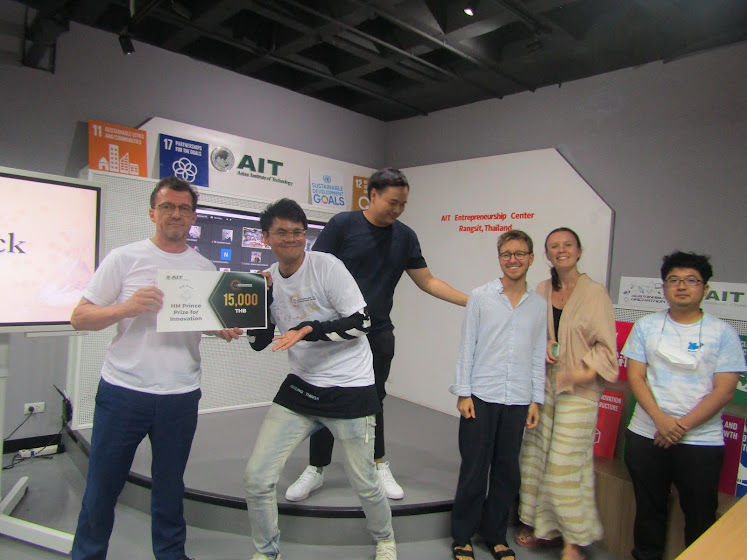Solve the Unsolved Rural-Urban Human Wellness Challenges
Date: 18-20 November 2022 from 4:00 PM Bangkok time
Venue: AIT-EC and Online
Organizer: Department of Development and Sustainability, SERD, AIT
Co-organizer: AIT Entrepreneurship Center (AIT-EC)
Apply to participate here
Click here for Agenda
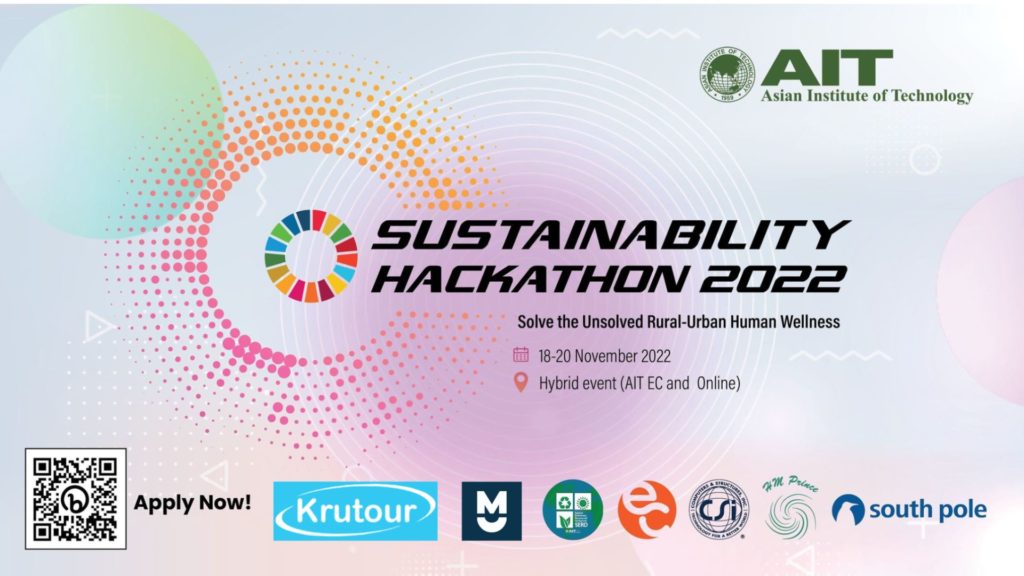
About the Sustainability Hackathon
This is the fourth year of the Sustainability Hackathon. Sustainability Hackathon is part of compulsory activity for the students taking the “Introduction to Development and Sustainability” course at the Department of Development and Sustainability, Asian Institute of Technology but the event is opened to everyone as long as the rules are followed. For the 2022 Hackathon, we focus on the interlinkages of rural-urban migration movements and how the human wellness in the urban areas can be improved as newly arrived population from the rural areas need to face many urban challenges. Human wellness refers to the active pursuit of activities, choices and lifestyles that lead to a state of holistic health.
Background
Since the industry revolution, especially under the industry revolution 3.0 and 4.0, more and more people move to the urban areas. Urban population is projected to reach 2.5 billion people or about 68% of the total population by 2050. Up to 90% of this projected population will take place mainly in Asia and Africa. Rapid urban population growth in Asia is faster than the level of urbanization, indicating that Asia will have the most crowded cities in the world. The population movements are motivated by the general understanding that urban areas have more to offer such as high-paid jobs, various job opportunities, personal growth and development, and human wellness than rural areas. Although some of this understanding is true, urban areas are crowded, polluted, noisy, and expensive to live in, while many urban jobs with good pay require high skills in many aspects. The movement to live in the urban areas also creates a vacuum of the laborforce necessary for production of agriculture and for managing the natural resources.
As people from the rural areas do not have the necessary skills to acquire jobs in the urban areas, they end-up living in the less expensive locations or even in the slump areas, and they need to work late with little or no time to take care of their family or loved ones. Similarly, rural areas face possible decline of agricultural supplies and further loss of natural resources. To improve human wellness in rural and urban areas, solutions to solving the aforementioned problems are urgently needed. In fact, the Agenda 2030 of the United Nations recognize the importance of protection and improvement of the human wellness anywhere, regardless where they live as targeted in its SDGs 3 “Ensure healthy lives and promote well-being for all at all ages”, SDG 8 “Goal 8: Promote sustained, inclusive and sustainable economic growth, full and productive employment and decent work for all”, SDG 2 “Goal 2: End hunger, achieve food security and improved nutrition and promote sustainable agriculture”, and SDG 12 “Goal 12: Ensure sustainable consumption and production patterns”
Scope for the Sustainability Hackathon 2022
With the increased global interests in sustainability, the global efforts to achieve the SDGs by 2030, and the increasing availability of the impact financing coupled with the increasing applications of the environmentally friendly Industry 4.0 Technologies in rural and urban areas, there are huge opportunities for us to solve these rural-urban human wellness problems. Therefore, the Sustainability Hackathon 2022 is organized to provide a forum for sustainability enthusiasts, innovators, and students to solve the problems facing the human wellness of the urban population originally migrated from the rural areas, while ensuring that rural-urban connection is maintained. The proposed solutions may cover one or more of the following topics:
1. Urban lifestyle
2. Urban healthiness
3. Urban employment
4. Urban air and pollution
5. Urban green space
6. Urban net-zero emission
7. Rural-urban living transition
8. Smart cities for human wellness
9. Smart urban tourism
Apply to participate here
Rules
General rules for the Sustainability Hackathon 2022 are that each team needs to have at least three members and the solutions must
1. Include three important terms, the rural area, urban area or urbanization, human wellness
2. Propose to use at least two of the Industry 4.0 technologies
3. Include three SDGs
To accommodate the worldwide participation, the launching event and hacking time are expected at 5:00 PM Bangkok time on 18 November 2022 and the pitching will start at 3:00 PM on 20 November 2022.
The Sustainability Bootcamp
During the event, several talks by prominent speakers about rural-urban human wellness, sustainability, SDGs, technology, innovation, startups, green financing, pitchdeck preparation and pitching techniques will be organized. Names will be provided as things progress.
Prizes
Teams with the highest scores (to be evaluated by judges) will receive one of the following prizes:
CSI Prize for Sustainability
Penguin Bangkok Prize for Social Impact
HM Prince Prize for Innovation
Two additional teams will receive the Prizes through the popular votes
Criteria for Judging
Sustainability Innovation: 20%
Relevancy to SDGs: 20%
Relevancy to Industry 4.0 Technologies: 20%
Product Design: 20%
Team Pitching: 20%
Judges for the Sustainability Hackathon 2022
Prof. Mokbul Ahmad
Course Instructor and Head of the Department of the Development and Sustainability, SERD, AIT
Prof. Vilas Nitivattananon
Course Instructor and Dean of SERD, AIT
Ladaporn Kat Khunikakorn
Prize Sponsor, South Pole
Prof. Dieter Trau
Director of AIT Entrepreneurship Center and Dean of SET, AIT
Course Instructors
Dr. Mokbul Ahmad
Professor, Development Management Planning and Innovation
Dr. Vilas Nitivattananon
Professor, Urban Innovation and Sustainability
Dr. Nophea Sasaki
Professor, Natural Resources Management
Organizing Committee
Nophea Sasaki, Chair
Takuji W. Tsusaka, Vice Chair
Jennifer Pangilinan, Secretary
Sanhakot Vithayaporn, Moderator
Agnes Pardilla, member responsible for onsite registration, T-Shirt and food and beverage
Sophal Meas, member responsible for onsite registration and logistic support
Kyawt Kay Paing, member responsible for online registrations
Winn Lai Lai Yi, member responsible for display design
Napatsakorn Kamkrua, member responsible for Zoom and Stage Engineering
Adithya Ganapathi Valivety, member responsible for Technical Support
Prativa Shah, member responsible for general and technical support
Pitiruedee Angkhananuchat, member responsible for Graphic art and design
Pia Montoya, member responsible for Facebook group and popular vote
Here are the Winner Teams
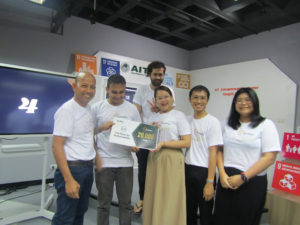
1st Winner Award- SI Prize for Sustainability > M&N Team
2nd Winner Award- HM Prince Prize for Innovation > SusHack Team
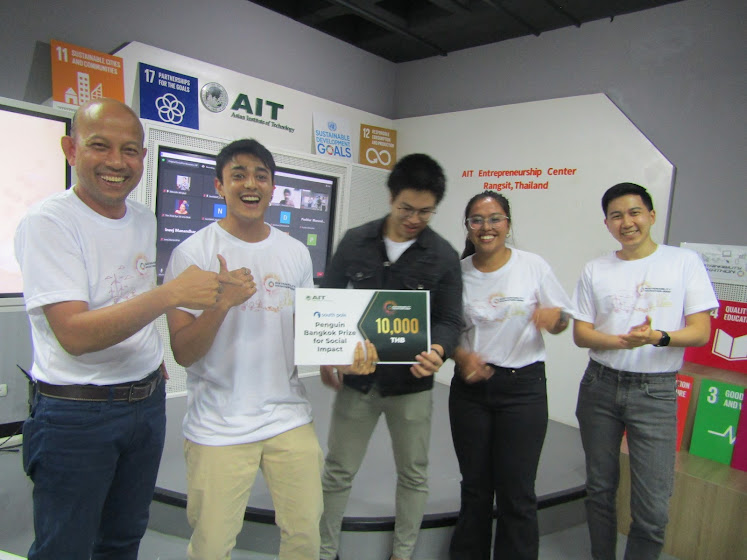
Popularity Award
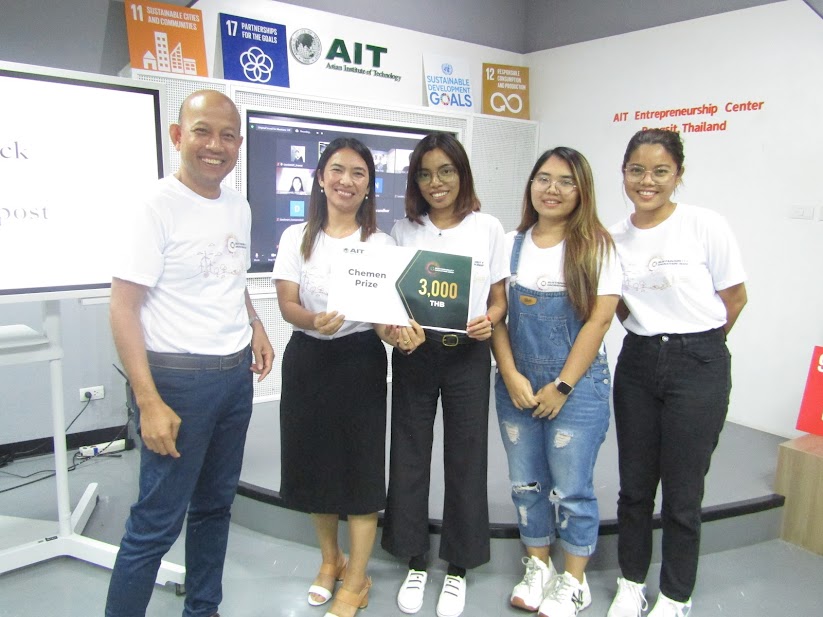
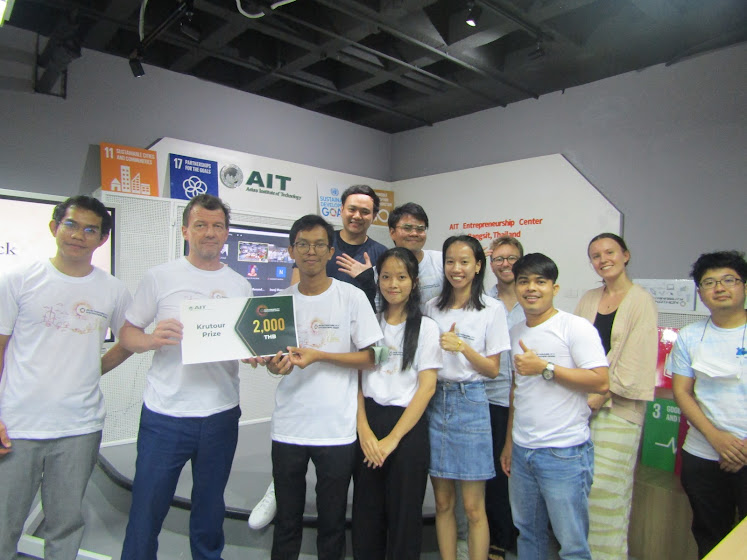
Congratulation to all teams!!
Sponsors
Computers & Structures, INC (CSI)
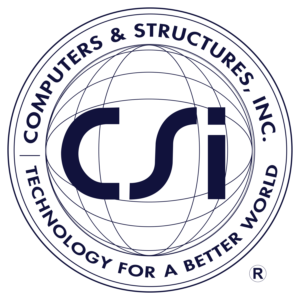

Dr. Takuji W. Tsusaka

Some useful links
Urbanisation, rural–urban migration and urban poverty: https://iied.org/sites/default/files/pdfs/migrate/10725IIED.pdf
Industry 4.0 and Nine Technologies: https://circuitdigest.com/article/what-is-industry-4-and-its-nine-technology-pillars
What is Social Finance? https://www.idos-research.de/uploads/media/DP__29.2021.pdf
Smart Sustainable Cities: The Essentials for Managers’ and Leaders: https://doi.org/10.3390/smartcities5030050
UN SDGs: https://bit.ly/3Ab3CE
